|
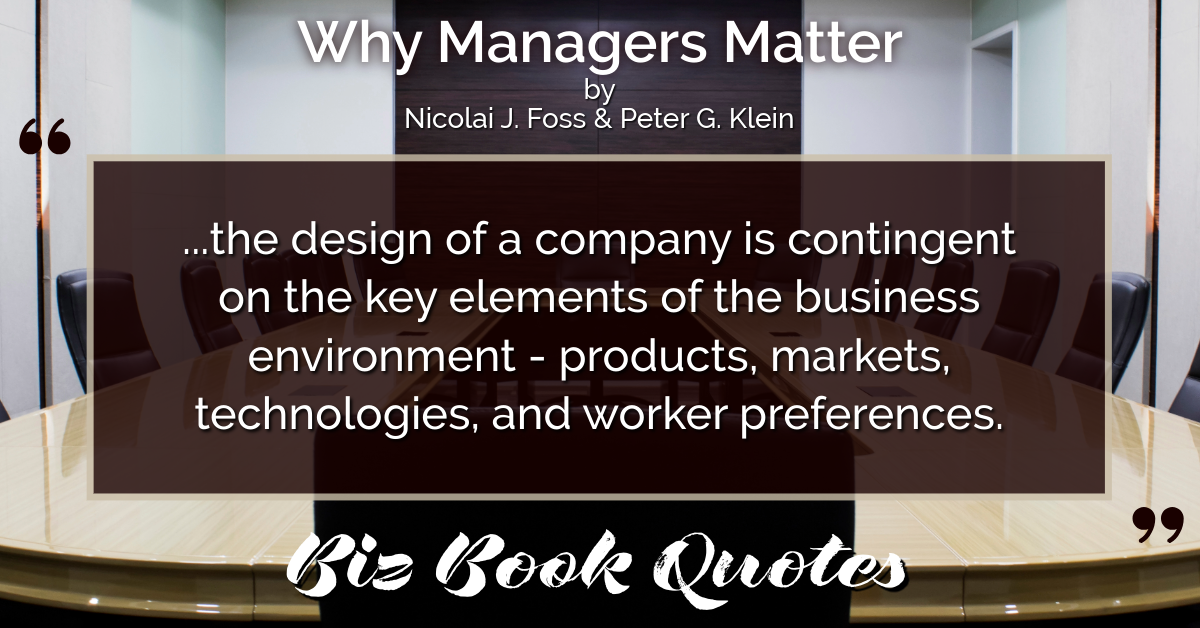
|
Why Managers Matter:
…the design of a company is contingent on the key elements of the business environment – products, markets, technologies, and worker preferences.
|
089 |
|
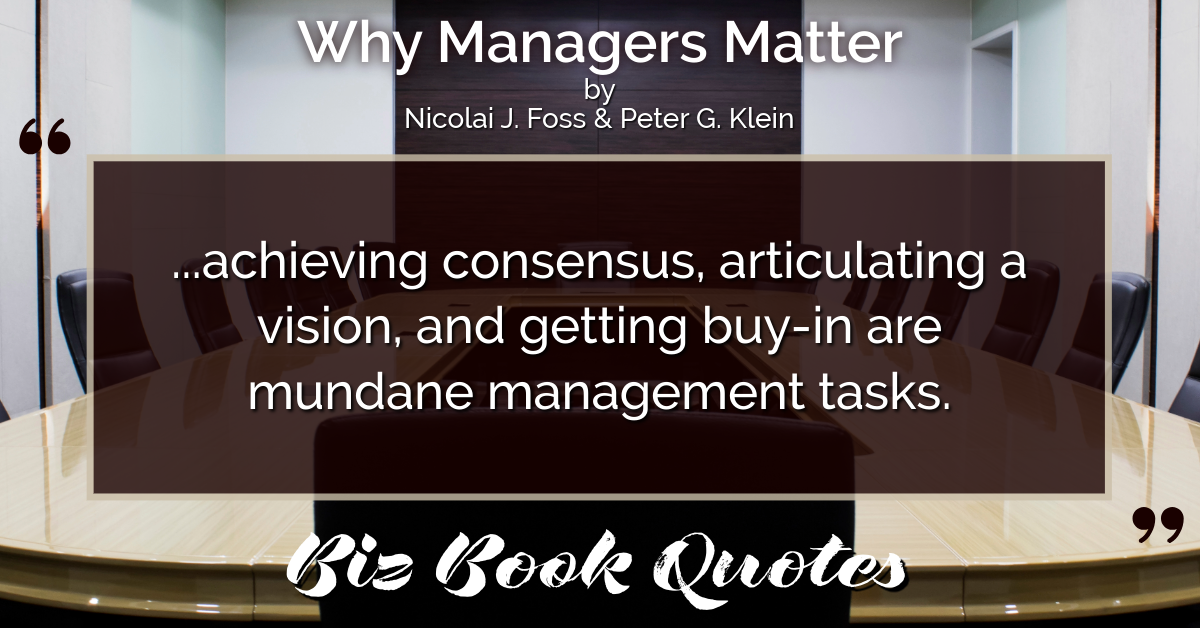
|
Why Managers Matter:
…achieving consensus, articulating a vision, and getting buy-in are mundane management tasks.
|
092 |
|
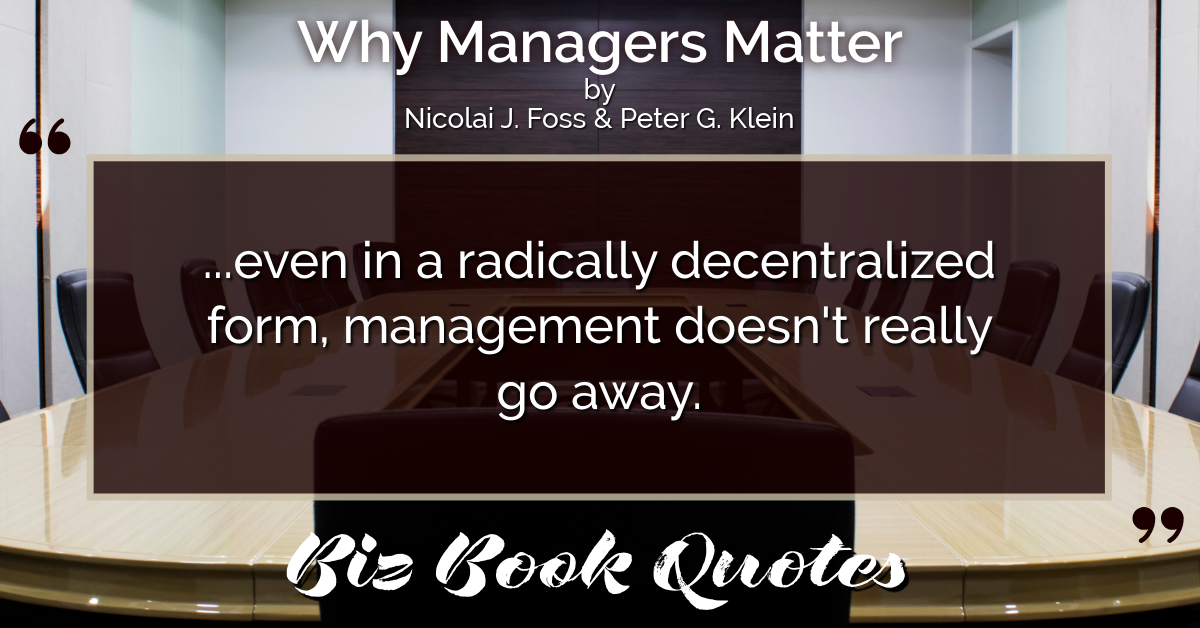
|
Why Managers Matter:
…even in a radically decentralized form, management doesn’t really go away.
|
100 |
|

|
Why Managers Matter:
…very flat hierarchies with a high degree of employee empowerment can work – but only under special circumstances.
|
109 |
|
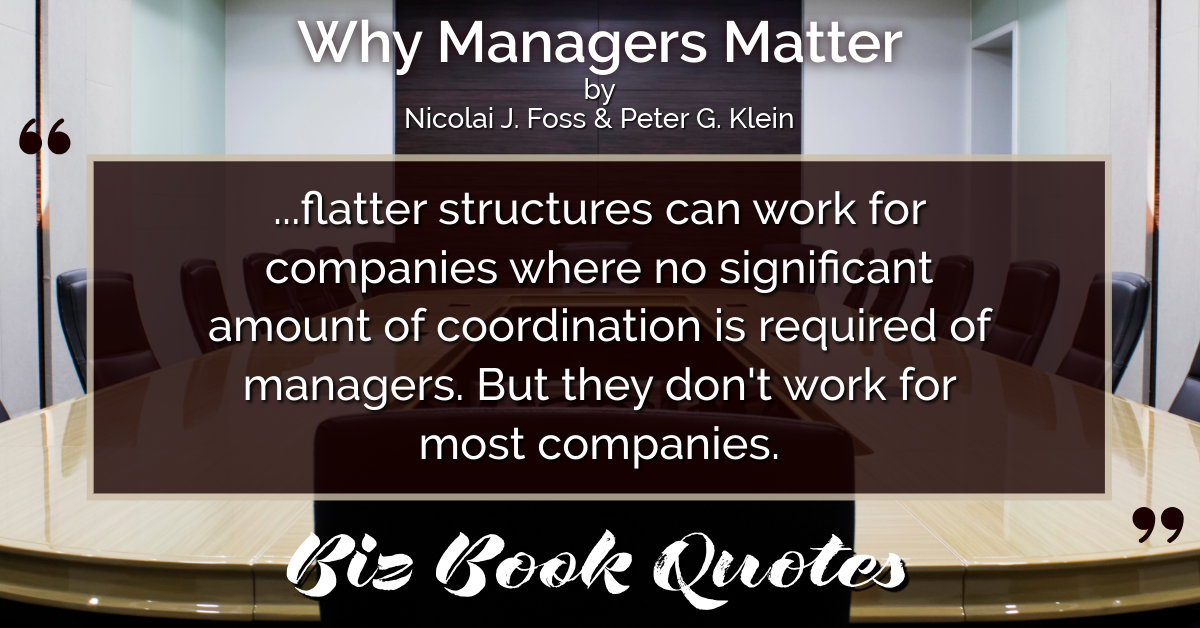
|
Why Managers Matter:
…flatter structures can work for companies where no significant amount of coordination is required of managers. But they don’t work for most companies.
|
110 |
|
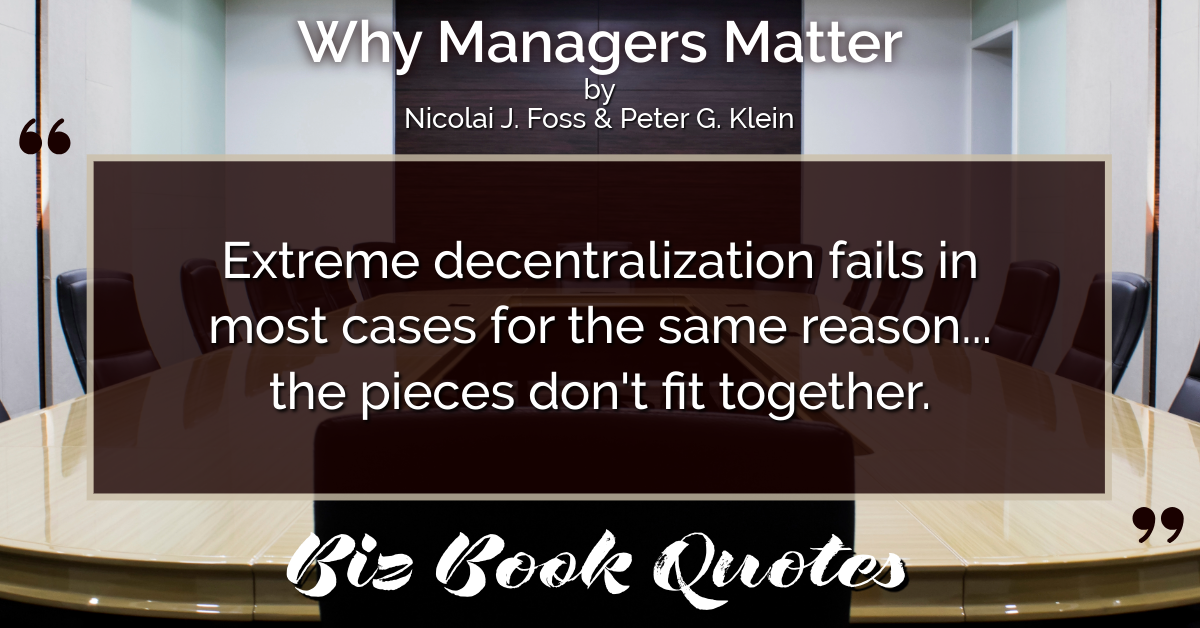
|
Why Managers Matter:
Extreme decentralization fails in most cases for the same reason… the pieces don’t fit together.
|
110 |
|

|
Why Managers Matter:
…it usually will not work to just give your employees well-nigh unlimited freedom.
|
110 |
|

|
Why Managers Matter:
…going bossless can lead to more meetings, more arguing, and less time spent working!
|
111 |
|

|
Why Managers Matter:
Passing information up and down the hierarchy slows down decision-making and is costly in other ways…
|
125 |
|
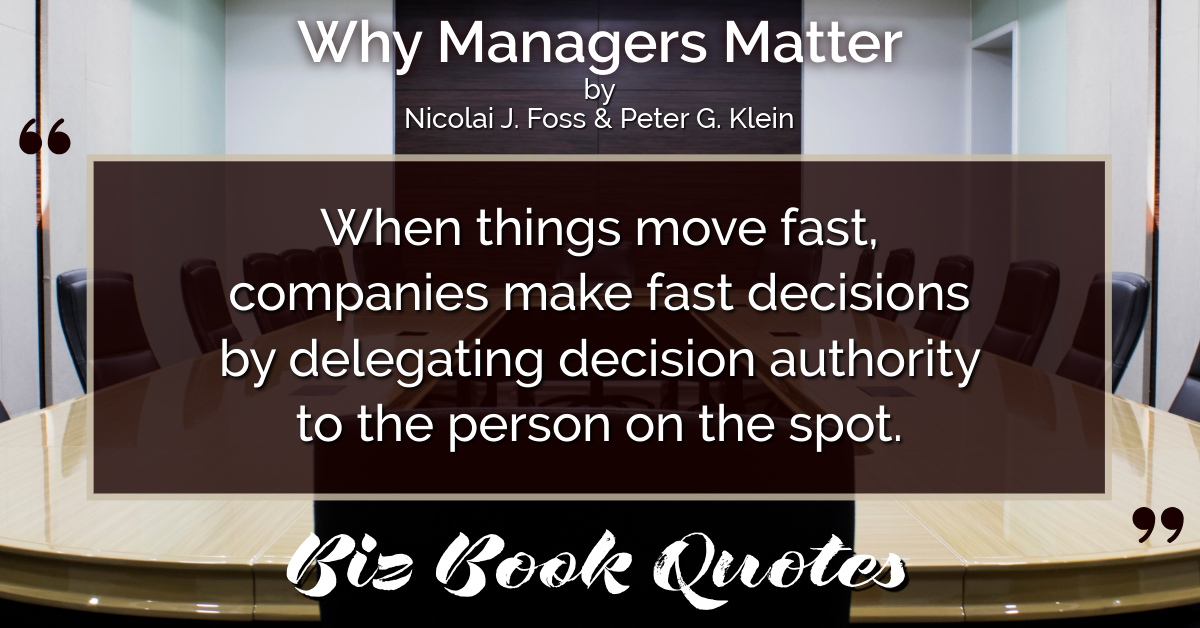
|
Why Managers Matter:
When things move fast, companies make fast decisions by delegating decision authority to the person on the spot.
|
125 |











